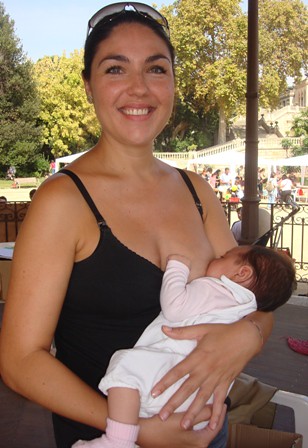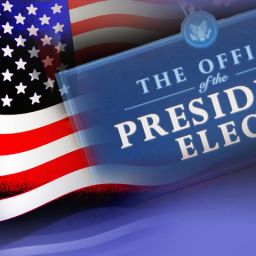
Guest Blogger, Clarissa Simon
In 2012, breastfeeding has become the focus of much media attention. In January and again last month, breastfeeding moms have been banned from Facebook for posting pictures that are “too revealing.” Alternatively, Jezebel’s recent F* You week included a personal essay about one mother’s hatred of breastfeeding. Mothers that breastfeed in public spaces that were then chastised have also been the focus of media coverage. In October, New York City’s Latch On NYC program limiting the providing of formula to new mothers in hospitals was discussed widely on local news, national news, and mommy blogs. But these discussions about breastfeeding are a slice of the overall cultural narrative about deciding what is right for all women when it comes to making a choice (or not) to breastfeed their children.
Recently, the Atlantic published a man’s appeal, titled A Father’s Case Against Breastfeeding. This opinion piece was akin to their previous publication in 2009 of Hanna Rosin’s The Case Against Breastfeeding. I had tolerated Rosin’s initial posting, but this new one was beyond the pale.
Here was an anti-breastfeeding article written by a dad. About his personal experience feeling insecure as a dad, except he doesn’t say that. No, he actually makes a global case for avoiding breastfeeding because what we all need as new parents is sleep. He’s tired, you see, and his son is doing just fine without his wife lactating, and plus she tried and failed, and his son is perfect anyway, so everyone should just use formula. So his own personal experience should be followed by all others?!? Wait, what?
Throughout this year, men in Congress and state legislatures have been telling us what we should do with our unmentionables (and yes, they don’t mention them by name), and now they’ve moved upwards to our breasts. Why? Why are men talkin’ about how breastfeeding (literally) sucks?
I have the credentials to talk about this — I’ve given birth (twice), provided complete nourishment through my power of my breast milk for both kids in their first few months, and continued nursing them well past their first year because, uh, something about attachment.
I also disliked breastfeeding. It was inconvenient, deprived me of sleep, and hurt for the first week (both times), when I was also recovering from surgery. I had mastitis (twice), and my second born was a refluxed baby who refused bottles, which meant I nursed round the clock without a break for weeks. She threw up immediately after nursing too, meaning I was literally covered in my own production. My first baby was enormous and ate constantly. He was a little barracuda and, new to the game, I didn’t initially drink the gallons of water required to keep myself from dehydration.
I also liked breastfeeding, though less often. I loved the milky grins. I loved the convenience. I loved the cost savings, too. I learned from friends that formula is expensive. Milk was free. Most important, though, providing milk meant that I was amazing. My own body nourished my fetus to maturity, and then nourished my newborn to abundance. I’m still rather proud of myself, even though women have been doing this for forever. Still, though, on an off day, I could remind myself of how crazy awesome my body is.
But I’m also a researcher, with a Masters of Public Health and a PhD. I presented at an academic and practitioner research conference in late October and my findings hit the parenting press, a notoriously critical bunch. In my study, I found that mothers who breastfed but did not co-sleep with their infants at six-months postpartum had higher morning and lower bedtime levels of the stress hormone cortisol. I intentionally gave no parenting advice, no criticism, just reported my findings and what they might mean. For mothers specifically.
Still, I’m not advocating a certain “profile” of parenthood, either as a parent or as a researcher. I’m not making a global case for breastfeeding. Some of my strongest feelings against staunch parenting demands revolve around breastfeeding. Biological motherhood requires a child to emerge from a body somehow, but a child can prosper and grow without human milk. Breastfeeding is intimate, it is a process, it requires a mother making a choice to use her body to feed her child in this manner.
Fathers don’t have a say in this choice. Her breasts, her choice. Though my husband is an equal partner in non-biological aspects of parenthood, he can’t lactate. A father can have feelings about what’s going on, but he doesn’t get to tell women that give birth that they should or shouldn’t breastfeed. He doesn’t have a case to make.




Really interesting article. I’m happy to read given that I’ve also breastfed my daughter and I also wish people would just shut up about breast feeding. Admittedly everything I’ve seen has been seeing breasts in a sexual text, which misses the whole biological function.
Thanks for writing this.
Definitely a subject where men have to butt out. I don’t know why they think they even count on this topic. Is it just because everyone feels free to criticize everything these days, or is it just a guy thing?? It’s like us telling them they should wear boxers instead of briefs and what color, too, or what size jock strap to choose. Sheesh! ENOUGH, already: women will make this decision for themselves. The rest of y’all can go compare dicks or something.
Great points all around! Instead of living in the 1950’s when men dictated to women how to run their households, we should live in a world where women make all household decisions themselves and men are around primarily to lift heavy things.
You did make one critical error though. You claim that “A father can have feelings about what’s going on” which from the reactions I’ve seen to this article, I think we all agree isn’t true. A father can take and hold a screaming baby from a mother who just fed her because “she can’t possibly still be hungry, she just ate”. He can cradle the angry child in his arms for hours on end while he also listens to mom complain about how much her nipples hurt. If he’s lucky, mom will come in at some point, tell him that the baby obviously is gassy, and then take it herself where 5 min later she’ll start to breastfeed it.
But if at any point during that he thinks “Can’t we just get a bottle for this thing and end all this” I think we can all agree he’s stepped over the line into “not supportive” land. God forbid he expects time to bond with his kids like his wife has (he didn’t even push them out a vagina! why would he expect time with them!). Worse yet, he could write an article about how much better home life was once they did switch to a bottle.
There you go. I make the money in my house, so therefore YOU, my wife, have NO SAY in what I spend my money on. If you want to go down that road, then you opened yourself up to that…
Thank you so much to Ms. Chaney and Ms. Liebler for allowing me to guest post, and to the commenters for presenting their feedback. I’m intrigued by the comment that seemingly equate control of one’s own bodily integrity with creating a hostile and abusive marital relationship (sorry to disappoint, Tom, but once you are married, your income is shared). There are many reasons for which I am grateful for my husband, and I suppose his not feeling threatened by a single parenting decision that requires my body (whereas there are plenty more that do not) is yet one of those.